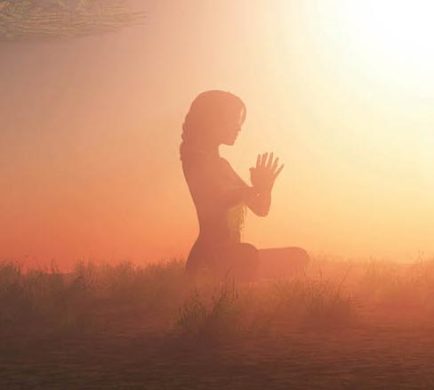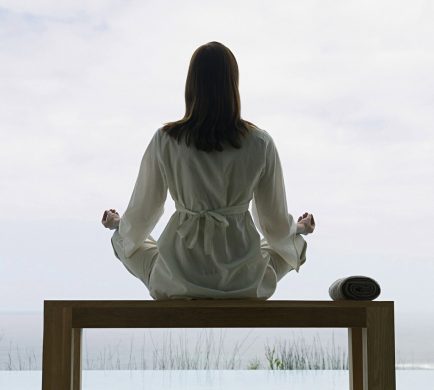By Angela Dunning
As a species, modern humans have become so detached from their bodies that it is something of a Herculean task to reconnect to our most basic, fundamental instincts.
One of the most important and primal of these is our gut instinct, which is often referred to as our “sixth sense” or intuition. This alerts us that something isn’t quite right; that there is a potential or actual danger nearby, or more benignly, we just get a feeling about something or someone or a hint about a particular decision or direction that would be best for us to take.
Gut instinct can be either loud, clear and strong, or vague, subtle, and diffuse, and therein lies the challenge in listening to it. The other important thing to remember about gut instinct is that it isn’t always 100% right. So, the knack is to listen and then discern how to respond. For example, our bad feeling about someone on first meeting them might be because they are having a bad day, or we are. We might need to give them one more chance. At other times, that first recoil from someone is spot-on, and we should run for the hills. It’s tricky, therefore, knowing which is which and how best to respond. It takes practice, and it can be really helpful to get support as we learn this art from those we know have walked this path already, like a good therapist, wise-woman healer, or coach.
In my work with horses and people, I am regularly reminded of the vital importance of being connected to our gut instinct. Horses are much more in touch with this instinct, as it is nothing less than life-saving for them. In the wild, it is their gut that alerts them, long before they see anything, that there might be a potential danger approaching or one lurking hidden somewhere. It is what keeps such non-predatory herd animals alive.
As humans have evolved into more solitary creatures, tucked up in our warm, safe houses and places of work, we need this life-saving inner alarm less and less. However, we have retained this instinct and for a good reason. For although we mostly no longer have to flee dangers like lack of food, somewhere to shelter, and to and approaching predators who could kill us for dinner, there are new, modern life dangers that we still need to be alert to. And on a less survival basis, our gut instinct helps to guide us in so many areas of our life that I have learned it is a vital and very helpful internal warning system.
Many women, in particular, suffer from what Jungian analyst and author Clarissa Pinkola Estés describe in Women Who Run With The Wolves as being “instinct-injured”. We have a shut-down connection to our body, our emotions, and our needs and desires in order to please, fit in, be acceptable, be loved, and/or keep ourselves safe, particularly during childhood. This results in us growing up into adulthood with very little internal support. We struggle to make decisions, and when we do, they are often not in our best interests. We marry the wrong person; we embark on the wrong career; we allow ourselves to be persuaded into situations, even potentially dangerous ones because our inner alarm is so remote from our awareness that we can’t hear or feel it. Or, we may have got into the survival habit of smothering and deadening it through alcohol, drugs, food, work, or any other form of addictive, compulsive behaviors.
Much of my work with women involves helping them slowly reconnect to their bodies. With the help of horses who emulate such exquisite gut connection in every moment, they begin to learn how to listen again to their intuitions, to stop immediately dismissing them out of hand as nonsense imaginings, irrational or stupid notions. All that society has drummed into us for hundreds of years, men and women,
but particularly in our patriarchal society, this is continuously repeated, which we, of course, internalize and thus stop ourselves listening to our own bodies. Instead, we are told to only use our rational intellect to guide us, or practical and especially financial reasons to help us make decisions, choices, even enormous life decisions like who to marry, what work to do, and generally how to behave to be acceptable. And we are also told to dismiss our bodies, our feelings, our needs, and our very own nature, which is trying to speak to us all of the time.
Yet, when we start to reconnect and learn to trust this quiet inner voice and feeling, which is trying so hard to nudge us in the right direction, it is so utterly empowering when we DO listen and find that we HAVE made the best decision. Such relief floods our mind and body, followed soon after by peace and a renewed energy. We learn that we are now speaking our truth and acting in our best interests. We have listened to ourselves and our own inner-guidance system; we have stood on our own two feet this time and not gone looking outside of ourselves for answers, guidance, and expectations. We have honored what our body is saying to us. We have valued our feelings and needs, perhaps for the first time in a very long time. Ultimately, we are in alignment with what’s best for ourselves on all levels and with our true-self.
I’ve recently had a number of experiences where I’ve felt torn about which direction to take and whether certain courses of action were right for me, or whether the timing was right or not. My old habit is so strongly imbalanced towards both needing usually dominant others in my life to guide and reassure me as well as towards letting my own overly dominant rational and practical side push me into directions which only seek to continue making me fit in, and which really are not in my whole best interests. Usually, when I go with this, I end up in situations where I feel pressured, hurried, uncomfortable, out of my true place, and imbalanced again.







